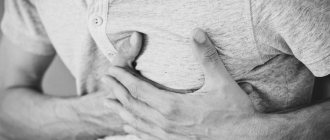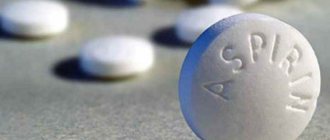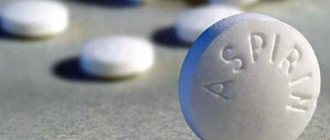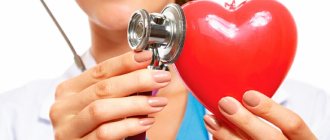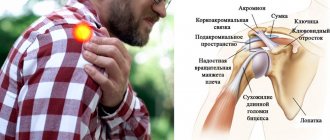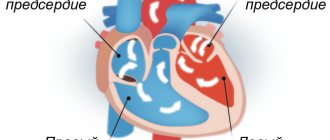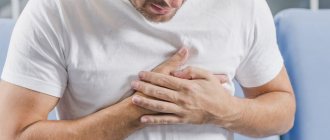Excessive amounts of ethyl alcohol have a negative effect on the body. But first of all, the load on the liver and cardiovascular system increases. The effect of alcohol on the heart manifests itself in myocardial damage, which subsequently leads to cardiomyopathy. Alcoholics also have an abnormal heart rate and heart pain. Patients, while intoxicated, do not even feel changes in the body. But this becomes noticeable the next day, when the effect of the alcohol wears off.
To prevent the development of adverse consequences, you need to figure out what to do if you feel severe pain in your heart after drinking.
Content:
- Diseases that cause heart pain after heavy drinking
- Why does the heart beat faster after drinking?
- What happens after drinking alcohol
- Signs of heart problems after heavy drinking
- My heart hurts after drinking - what to do?
- What to do before the ambulance arrives
Many alcohol addicts experience heart pain after drinking.
And this is not surprising - after entering the body, alcohol breaks down into toxic metabolites, which make it impossible for the heart to function properly. As a result, a person feels sluggish, it is difficult for him to move, breathe, or perform even the simplest physical work. It is especially dangerous if the pain behind the sternum becomes acute , accompanied by numbness of the arms, legs, face, and an unpleasant sensation of the heart “jumping out” of the chest.
If these symptoms occur, you should urgently consult a cardiologist. Otherwise, stroke, myocardial infarction and other deadly diseases of the cardiovascular system may develop.
conclusions
The first signs of the toxic effects of alcohol on the human body are a hangover with nausea and pain in the heart, dizziness and weakness. The general deterioration of the condition lasts from several hours to a couple of days, depending on the amount of alcohol consumed. Of particular danger are severe stabbing or pressing pain in the heart. If such complaints occur, consult a doctor for treatment, as this indicates cardiac pathology. And in order to find out how alcohol affects blood pressure and its indicators, watch the video on our channel at the link below.
Diseases that cause heart pain after heavy drinking
People who abuse alcohol should be prepared to be diagnosed with severe pathology of the cardiovascular system. Not a single glass of alcohol leaves its mark on the body.
If your heart hurts during a binge, you can assume:
- Alcoholic cardiomyopathy. The organ expands to the left and beats very hard after drinking. Symptoms are aggravated by any alcohol, even weak alcohol.
- Arrhythmia. It manifests itself as a deviation of heart contractions and generated impulses. As a result, the heart rate reaches 60 to 90 beats per minute.
- Ischemia. The addict complains of a lack of oxygen. Upon examination, it turns out that his coronary arteries are not functioning properly, as they contain blood clots of different sizes.
- Arterial hypertension. Causes damage to cell membranes, reduces myocardial contractility, reduces the lumen of blood vessels and makes their walls very dense.
- Atherosclerosis. It is the result of impaired protein and lipid metabolism, high cholesterol levels, and calcium deposits in the body.
These are not all the diseases that cause the heart to beat irregularly after heavy drinking. The list of common cardiac pathologies is very wide. A drinker will not be able to diagnose himself; he needs to undergo a comprehensive examination prescribed by a doctor.
What to do if a person is unable to stop drinking alcohol?
Not everyone is able to stop drinking alcohol on their own, even if they have heart problems.
Alcohol is highly addictive, and not everyone can cope with it. If you cannot stop drinking alcohol on your own, you need the help of a professional narcologist. You can get this help in our clinic. We employ experienced narcologists who professionally lead patients out of binge drinking and relieve them of alcohol addiction. In addition to drug treatment, we also provide psychological assistance to clients, helping them understand the cause of addiction and return to a healthy, sober life. Call 8 (495) 150-85-96
Why does the heart beat faster after drinking?
Alcohol contributes to the development of poisoning. Literally a few minutes after entering the bloodstream, it begins to break down into dangerous toxins, the main of which is acetaldehyde. Toxic substances rush into the cells of soft tissues and internal organs, disrupting the functioning of the heart. Then the heartbeat quickens, blood pressure increases, and aching pains on the left side of the chest begin to bother you.
If the heart beats very strongly after a feast, the reason may be hidden in the following processes:
- Alcohol leaches various beneficial substances from the body - magnesium, calcium, potassium.
- The vessels dilate greatly , causing blood to flow through the veins more quickly. And due to increased pressure, the heart muscle begins to function unstably - tachycardia occurs.
- Ethanol promotes rapid fluid removal. The blood thickens and the heartbeat increases. Then the person becomes scared - the condition resembles a panic attack.
Also, due to prolonged drinking, the contractility of the organ may deteriorate, blood vessels spasm, and the flow of oxygen through the coronary arteries is minimized. All these are factors leading to pathologies of the cardiovascular system.
Emergency medical intervention
A person will certainly need it after the holiday if he has:
- severe shortness of breath,
- exacerbation of any old diseases,
- panic attack,
- unreasonable fear of dying,
- lack of clarity of perception,
- sharp pain.
Such symptoms usually accompany acute heart disease. Dizziness and apnea (stopping breathing) may occur. Only a doctor can accurately determine the cause of the problem and find out why is observed . And only the doctor must prescribe medications and select the necessary therapy for each individual case.
Signs of heart problems after heavy drinking
Failures in cardiac activity do not necessarily manifest themselves as pain. Acute pain in the chest is evidence of a serious disorder. Therefore, when it occurs, you should not delay treatment.
The following symptoms indicate that you need to call an ambulance:
- interruptions in heart function;
- feeling of tightness in the chest;
- very strong heartbeat;
- acquiring a blue tint to the skin;
- a sharp increase/decrease in blood pressure.
Alcohol has an arrhythmogenic and cardiotoxic effect and affects myocardial activity even in people leading a healthy lifestyle. Therefore, it is pointless to hope that drinking will not lead to any problems.
Recommendations from experts
Any therapeutic measures aimed at treating cardiomyopathy will be ineffective if the patient continues to drink alcoholic beverages. It is very important to contact a qualified addiction specialist who will help overcome attachment and prevent a breakdown. The patient can receive the most effective treatment in familiar and comfortable conditions, which will not disturb his unstable mental state.
Restoring myocardial function is a long process that requires the patient to unquestioningly follow all doctor’s orders, otherwise the outcome may be sudden death.
My heart hurts after drinking - what to do?
The most important test for suspected cardiac pathology is an electrocardiogram. Thanks to it, it is possible to diagnose myocardial ischemia and necrosis. The patient may also be prescribed an ultrasound scan.
If a problem is identified, it must be treated immediately. First of all, doctors take measures to remove toxic breakdown products of ethanol from the patient’s body. They do this with the help of a dropper.
The addict is given medications that reduce cravings for alcohol , restore fluid balance, improve the functioning of the central nervous system, and normalize blood pressure. Enterosorbents are used to remove toxic components. In order to improve ion conductivity, glucose and calcium chloride are added to the droppers.
Medicines to stabilize cardiac activity are selected strictly on an individual basis. When drawing up a treatment regimen, the doctor takes into account the patient’s age, dominant symptoms, and the presence of concomitant diseases.
Treatment with traditional methods
Traditional medicine, proven over decades, always comes to the rescue of a person’s illnesses. In fact, the following suggested ways to overcome a hangover are so simple and useful that everyone who decides to drink alcohol should know about them:
- You can reduce hangover symptoms with brine or sauerkraut juice. You can also drink kefir, orange or tomato juice. Don't forget to drink plenty of fluids. Any liquid will significantly improve the patient's condition. If a headache is added to your hangover, you can drink tea with lemon or cranberry juice.
- An egg will be no less beneficial than water. A small amount of vinegar, ketchup and salt are added to a raw egg. The cocktail is drunk in one gulp.
- You can add castor oil to warm milk, two tablespoons of oil per glass of liquid. You need to drink in large sips.
What to do before the ambulance arrives
Before the ambulance arrives, you must:
- lay the patient on a flat, hard surface, placing something under his head;
- unfasten the top buttons of clothing, trouser belt;
- ensure the flow of fresh air into the room;
- place a Nitroglycerin or Validol tablet under your tongue;
- If your blood pressure is high, give medicine to lower it.
All further actions must be coordinated with your doctor.
First aid measures for poisoning
One of the most effective ways to eliminate alcohol from the body, and therefore its breakdown products, is gastric lavage. For the poisoned person, prepare a soda solution or light pink water with the addition of potassium permanganate. The victim is given plenty of liquid to drink. Then induce vomiting by pressing on the root of the tongue.
People who are drunk and unconscious should not be left unattended, as the person runs the risk of suffocating on vomit that enters the respiratory tract. To avoid this, the patient is placed on his side and body movements are controlled. You can bring the victim to consciousness by vigorously rubbing the ears; such manipulations will speed up the flow of blood to the head.
If there is no breathing, then use the following methods to resume it:
– removing mucus from the mouth and performing artificial respiration;
– impact on active points located on the tip of the nose, under it, between the chin and lower lip. Massaging these areas will help stimulate the heart and respiratory system.
When it is not possible to move the drinker to a warm room, the body is covered with a blanket or warm clothes.
The presence of bile in the vomit is indicated by a yellow color, a burning sensation in the mouth and esophagus, and a bitter taste. This is observed when the biliary tract is disrupted, when liquid is thrown into the stomach and not excreted by the body. The systematic occurrence of such symptoms when drinking alcohol is a sign of problems with the liver and gall bladder. It is necessary to undergo examination in a hospital and stop drinking alcohol even in small doses.
Literature:
- Endogenous intoxication syndrome (manual) / S. G. Musselius. — Ed. 2nd, revised and additional - Moscow: Author's book, 2019. - 356 p.
- Addictology: psychology and psychotherapy of addictions / G. V. Starshenbaum. - Moscow: Kogito-Center, 2006 (Mozhaisk (Moscow region): Mozhaisk Printing Plant). — 366 p.
- New reference book for a cardiologist: differential diagnosis of diseases, functional tests in cardiology, treatment of cardiovascular pathologies, new medical technologies / A. K. Myshkina. - Rostov-on-Don: Phoenix, 2007. – 348 p.
Alcohol intoxication: how to prevent and avoid
In order not to deny themselves pleasure, but also not to experience symptoms of poisoning after drinking alcohol, people have come up with simple but effective ways.
- Do not drink without an empty stomach
. If you are sure that alcoholic beverages are planned to be consumed at a holiday that will take place soon, then you should have a good meal before reaching for the bottle. Alcohol will be processed by the liver gradually, which means the risk of poisoning by decay products will decrease. - Have a snack.
Alcohol mixed with food is not so harmful to the body. It is also possible to replace snacks with juices or still water. A mild degree of intoxication will help eliminate fermented milk products - kefir, yogurt. - If poisoning could not be avoided
, then the patient is brewed with herbal teas from chamomile, mint, lemon balm, and St. John's wort. No sugar is added to tea. Thanks to their composition, the herbs neutralize nausea and prevent irritation of the gastric mucosa. Fermented milk products also help protect the digestive organs, as they create a protective film and prevent the effects of alcohol on the walls of the stomach. - For persistent nausea,
prepare ginger water. To do this, take a quarter of a teaspoon of dried ginger root and place it in a glass of boiling water. After the product has cooled, drink 30 ml 3 or 4 times a day. It is best to take stale ginger, or increase the dosage of the root to ½ part of a teaspoon.
You can use mint leaves instead of ginger The plant helps prevent inflammation of the stomach and intestines and relieves symptoms of intoxication. Add 1 teaspoon of mint to a glass of boiling water. After 10 minutes, drink the product in small sips.
Medical attention is necessary for incessant vomiting, dehydration, signs of which are thirst, weakness, and dizziness.
The most effective way to avoid alcohol poisoning is to avoid drinking alcoholic beverages.
If you cannot resist
the temptation
, then you should stick to a certain dose that does not cause negative consequences. If you feel that you need medical help, take care of your health and contact a narcologist. This is the case when it is better to play it safe.

